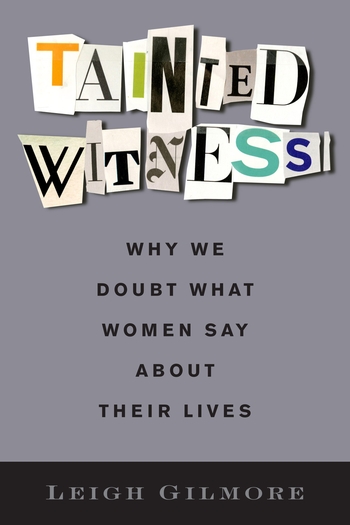Amy Allen — 'Mommy Wars' Redux: A False Conflict
“[T]he history of second wave feminism suggests that the choice that has emerged in the debate over Badinter’s book — that we either view attachment parenting as a backlash against feminism and or embrace attachment parenting as feminism — is a false one.” — Amy Allen
On May 27, the New York Times published “‘Mommy Wars’ Redux: A False Conflict” by Amy Allen in their philosophy blog, The Stone. Allen is the Parents Distinguished Research Professor in the Humanities and a professor of philosophy and women’s and gender studies at Dartmouth College, the author of The Politics of Our Selves, and the General Editor of the excellent New Directions in Critical Theory series for Columbia University Press. In “‘Mommy Wars’ Redux,” she looks at the furor caused by Elisabeth Badinter’s book, The Conflict: How Modern Motherhood Undermines the Status of Women and argues that conflict about motherhood among feminists distracts from the “economic policies and social institutions that set up systematic obstacles to women working outside of the home.”
Allen claims that the central argument of The Conflict is that “a certain contemporary style of mothering — a style that requires total devotion of mother to child, starting with natural childbirth and extending through exclusive and on-demand breastfeeding, baby-wearing and co-sleeping — undermines women’s equality.” Allen thinks that this kind of questioning of motherhood is a question that reveals divides in feminism as a movement:
A post in The Times’ Room for Debate forum earlier this month described the conflict staked out in Badinter’s book as one of “motherhood vs. feminism.” But what this discussion failed to capture is something that Badinter actually discusses in her book at some length, namely, that the debate over mothering is not just a conflict between feminists and women in general but rather a conflict internal to feminism itself.
[A] short detour through the history of second wave feminism suggests that the choice that has emerged in the debate over Badinter’s book — that we either view attachment parenting as a backlash against feminism and or embrace attachment parenting as feminism — is a false one. Neither vision of feminism challenges the fundamental conceptual oppositions that serve to rationalize and legitimate women’s subordination.
Even if one accepts the diagnosis that I just sketched — and no doubt there are many feminist theorists who would find it controversial — one might think: this is all well and good as far as theory goes, but what does it mean for practice, specifically for the practice of mothering? A dilemma that theorists delight in deconstructing must nevertheless still be negotiated in practice in the here and now, within our existing social and cultural world. And women who have to negotiate that dilemma by choosing whether to become mothers and, if they do become mothers, whether (if they are so economically secure as to even have such a choice) and (for most women) how to combine mothering and paid employment have a right to expect some practical insights on such questions from feminism.
The policies that make it so difficult for women to balance the practice of mothering and the pursuit of a career are what concern Allen:
But Badinter’s book also points to another kind of conflict, one that isn’t primarily internal and psychological but is rather structural. This is the conflict between economic policies and social institutions that set up systematic obstacles to women working outside of the home — in the United States, the lack of affordable, high quality day care, paid parental leave, flex time and so on — and the ideologies that support those policies and institutions, on the one hand, and equality for women, on the other hand.
This is the conflict that we should be talking about. Unfortunately this is also a conversation that is difficult for us to have in the United States where discussions of feminism always seem to boil down to questions of choice. The problem with framing the mommy wars in terms of choice is not just that only highly educated, affluent, mostly white women have a genuine choice about whether to become über moms (though the ways in which educational, economic and racial privilege structure women’s choices is a serious problem that must not be overlooked). The problem is also that under current social, economic, and cultural conditions, no matter what one chooses, there will be costs.
Allen closes her argument with a warning against losing sight of these limiting conditions in the kinds of arguments that Badinter’s book has provoked:
If the “the conflict” continues to be framed as one between women — between liberal and cultural feminists, or between stay at home mothers and working women, or between affluent professionals and working class women, or between mothers and childless women — it will continue to distract us from what we should really be doing: working together — women and men together— to change the cultural, social and economic conditions within these crucial choices are made.
1 Response
Leave a Reply
You must be logged in to post a comment.





Am I the only one who thinks that Badinter’s age might make her a bit out of touch with this generation of parents? No one seems to be mentioning this fact or the fact that she has a huge stake in formula given her millionaire status with Nestle. I answer the question, “Who is Elisabeth Badinter” here:
http://www.themommypsychologist.com/2012/04/27/who-is-elisabeth-badinter/